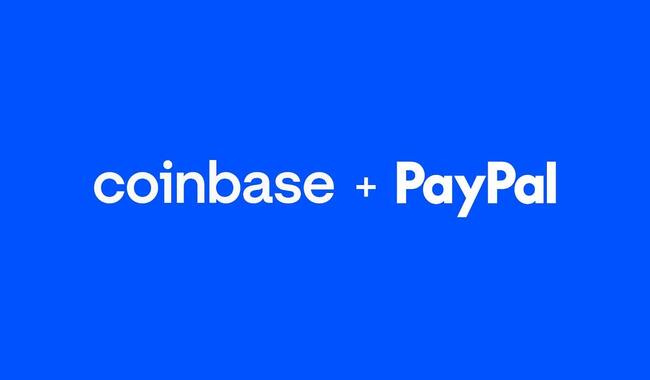Highlights:
- To foster stablecoin adoption, Coinbase and PayPal are providing zero-fee PYUSD-USD conversions.
- The collaboration explores on-chain platforms and decentralized finance (DeFi) using PYUSD.
- PYUSD has been on the rise in terms of usage, and its market cap has doubled in the past year.
Coinbase and PayPal have further expanded their partnership to boost the adoption of PYUSD. Coinbase now provides no-cost conversions between PYUSD, covering all users, including retail and institutional clients. The change increases access and lowers the cost of stablecoin payments. It also sets PYUSD for more widespread use in digital trade.
As per the statement, the partnership integrates PayPal’s worldwide payment system with Coinbase’s crypto infrastructure. PayPal users can readily access crypto payments via a familiar platform. PYUSD is now supported across Coinbase’s trading and custody systems. This partnership advances the aim of quicker, more inclusive payments and helps stablecoins to be included in daily financial systems.
Let's do this, @PayPal.
We're teaming up to advance stablecoin payments. pic.twitter.com/OwLjresMqX
— Coinbase 🛡️ (@coinbase) April 24, 2025
DeFi Growth and Onchain Payments
PayPal and Coinbase will investigate fresh PYUSD applications across decentralized finance systems. Peer-to-peer transfers, borrowing, and lending all utilize PYUSD. DeFi integration does away with the need for traditional intermediaries in financial transactions, enabling quicker, less expensive, and more open payments. The firms want to boost stablecoin use across the blockchain.
PYUSD will also enable merchant settlements inside PayPal’s ecosystem. Merchants can now directly accept and settle stablecoin payments, eliminating dependence on credit systems or traditional banking rails. Coinbase’s system supports large-scale, real-time transactions of this kind, increasing the efficiency of world trade.
Recently, PayPal added a 3.7% yearly yield on PYUSD balances to entice holders. Paid in PYUSD, rewards encourage long-term usage. This promotes stablecoin use across PayPal’s large user base and increases financial advantages from regular use. These actions taken together help PYUSD to be a viable payment option.
PayPal has announced that it will launch a rewards program for holding its stablecoin PYUSD this summer. U.S. users who hold PYUSD in their PayPal or Venmo wallets will be able to earn an annual yield of 3.7%, accrued daily and paid monthly. Rewards will be distributed in PYUSD,…
— Wu Blockchain (@WuBlockchain) April 23, 2025
Future Regulation and Stablecoin Growth
With volumes increasing from $6.2T in 2023 to $22T in 2024, stablecoin use is expanding quickly. Though still tiny, PYUSD has experienced fast market growth. In one year, its market capitalization increased from $400 million to $872 million. Further momentum is anticipated from the Coinbase and PayPal collaboration. Moreover, it enables PYUSD to stand out in a crowded stablecoin market.
Previously, Coinbase supported Circle’s stablecoin, USDC, without fees. Now, it’s introducing similar services to broaden its offerings beyond crypto trading by adding PYUSD. In the digital asset sector, PayPal has become more prominent. Together, they are making stablecoins feasible for actual payments.
U.S. legislators are getting closer to enacting stablecoin rules. A bill could be approved by Congress as early as Q3 2025 to clarify and strengthen the market. Their combined initiatives put PYUSD at the core of digital payment innovation.
In addition, Crypto2community reported today that Alabama officially dropped the complaint it brought against Coinbase over its staking program. This move decreases the number of states still legally contesting the exchange. Coinbase and the Alabama Securities Commission decided to pay for their legal expenses independently.
Best Crypto Exchange
- Over 90 top cryptos to trade
- Regulated by top-tier entities
- User-friendly trading app
- 30+ million users
eToro is a multi-asset investment platform. The value of your investments may go up or down. Your capital is at risk. Don’t invest unless you’re prepared to lose all the money you invest. This is a high-risk investment, and you should not expect to be protected if something goes wrong.






